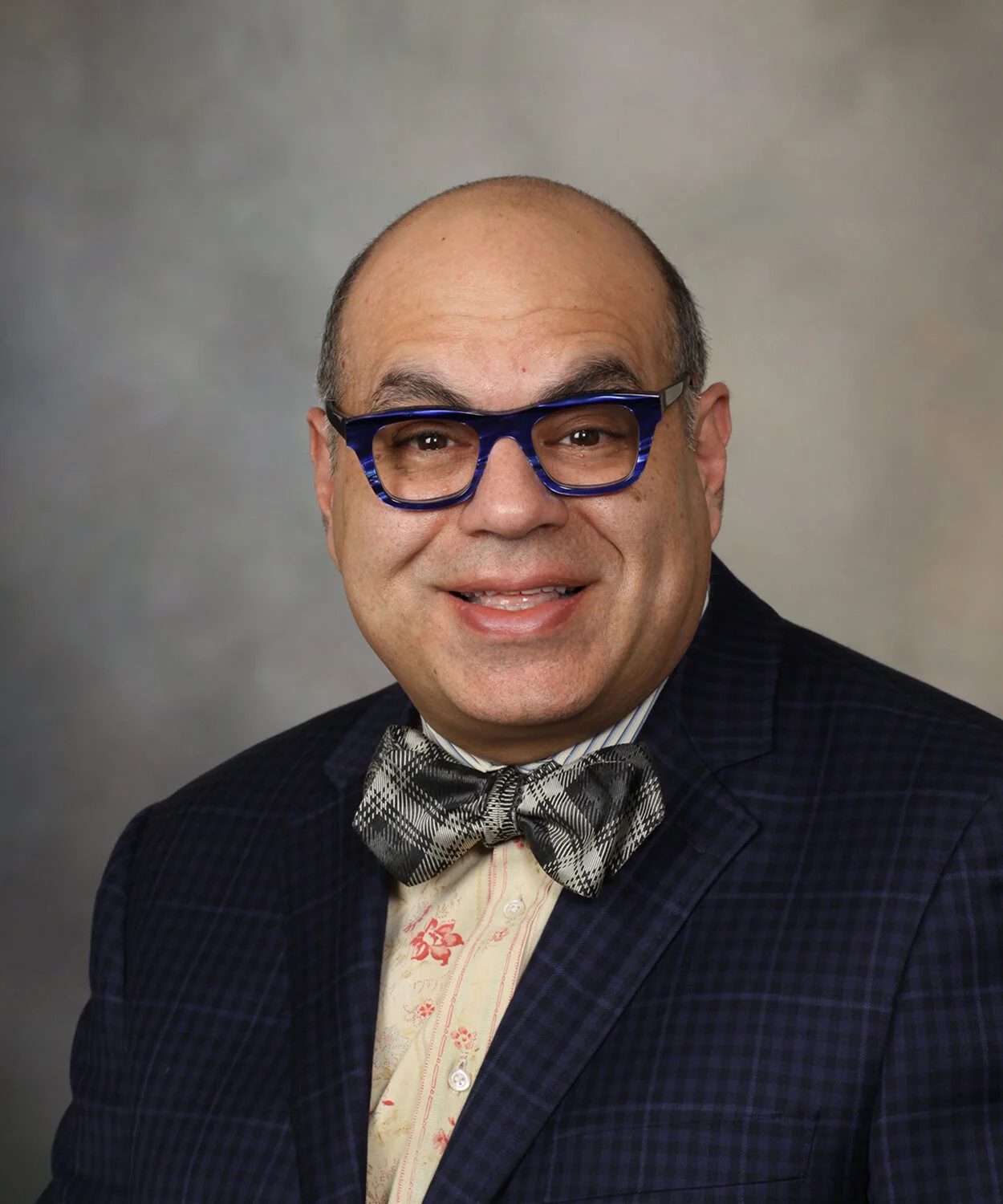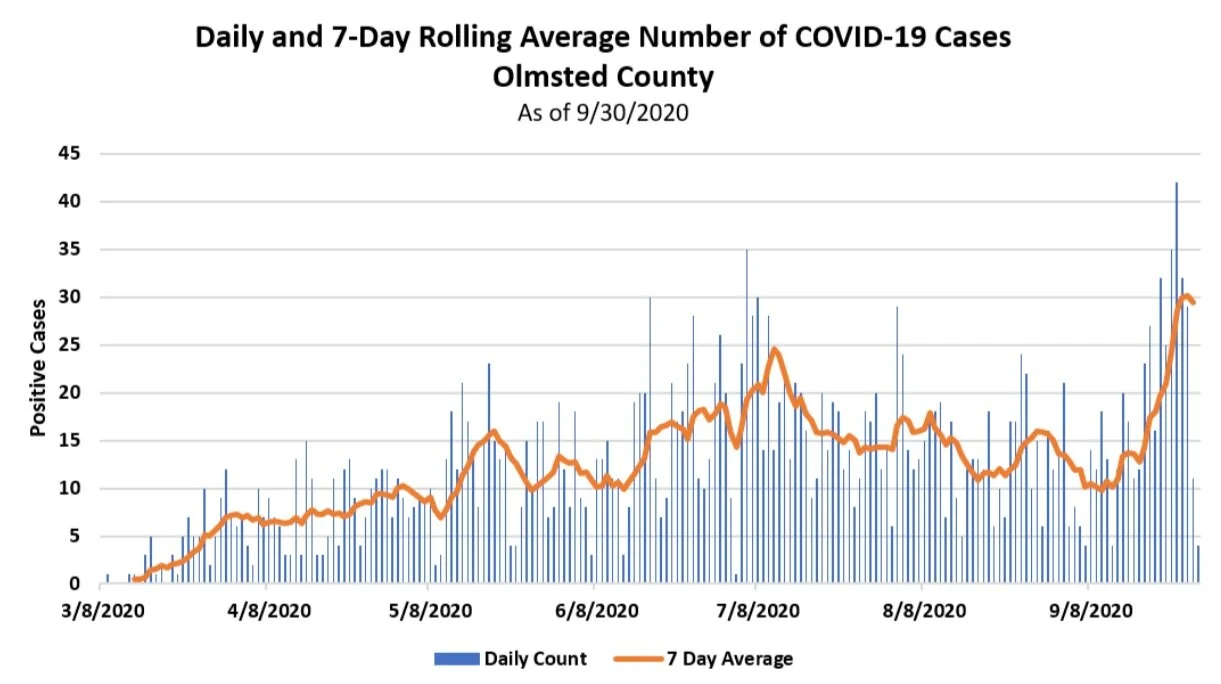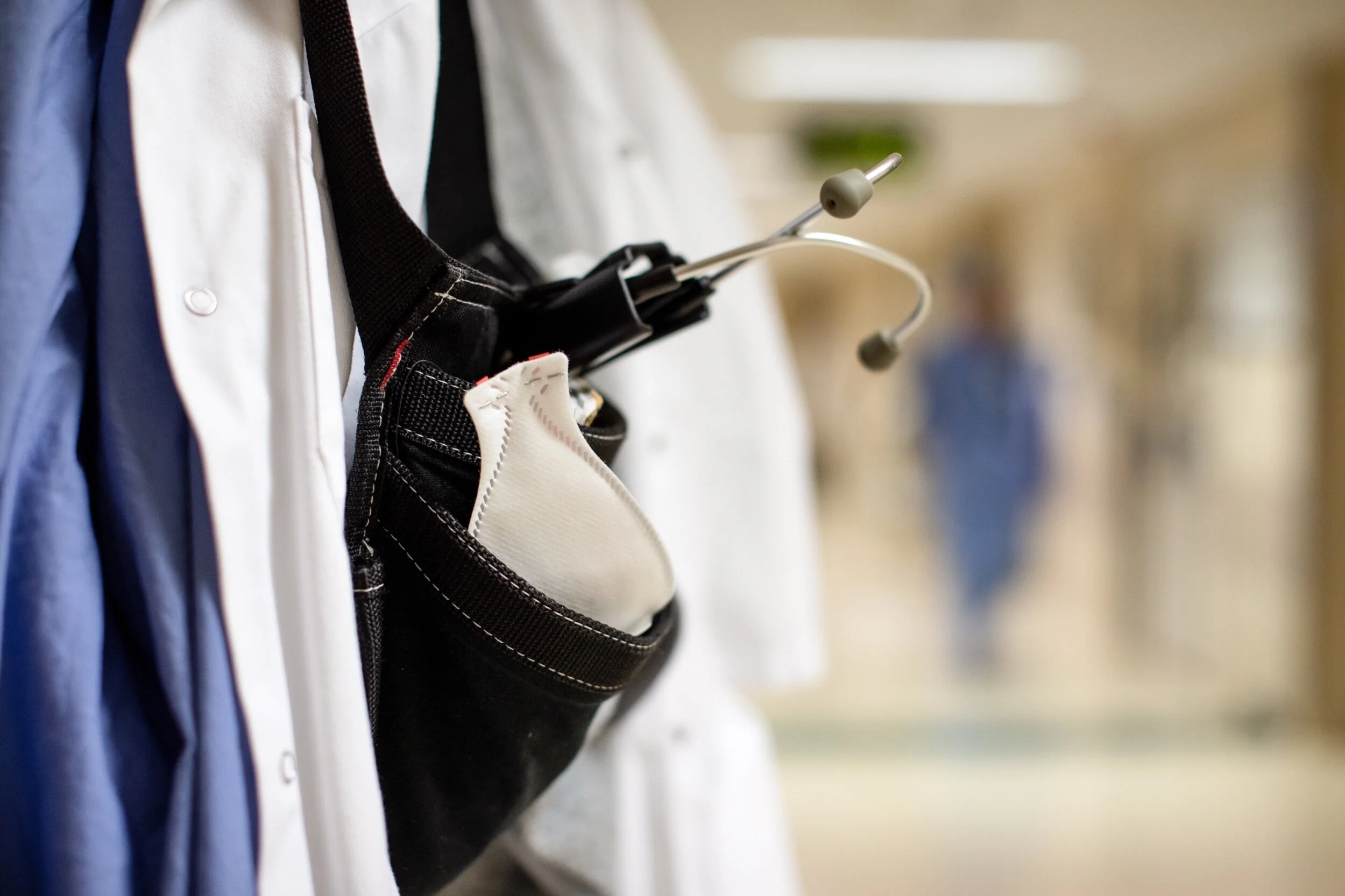'It’s become a prevalent issue': Mayo doc discusses the challenges of combating medical misinformation on social media
Misinformation in medicine is nothing new. From the ‘pseudo-medicine’ tactics of quack doctors in the 19th century to the anti-vaccination claims of the present day, medical practitioners have been locked in a perpetual fight to replace rumors and fear-mongering with facts and science.
The past six months, however, have heightened the stakes of this constant battle. Doctors and nurses on the frontlines of Covid-19 have reported a sharp and startling increase in the amount of patients skeptical or downright combative over modern medical practices — citing false theories circulating on their social media platform of choice.
To find out what Mayo Clinic is doing to counteract the escalating number of false medical claims and theories on social media, we spoke with Dr. Farris Timimi, cardiologist and medical director of the Mayo Clinic Social Media Network. The highlights of our conversation are below.
MCB: How has social media changed the relationship between patients and practitioners? What do physicians have to think about and prepare for now, that they didn’t have to in the past?
Dr. Timimi: The challenges that people highlight regarding social media and medicine… they’re not new. The problem now is that misinformation can propagate faster than a virus can.
I think it’s really difficult for us in health care. Many of us have a career focusing exclusively on the patient, making sure their needs are met, so we’re not necessarily trained in social media. We don’t have the followers many people do, even though more and more of us are living our lives online. Ninety percent of people are getting their information online, Facebook, Twitter… that’s how they view their primary news sources. It’s created an awareness of what we call ‘Dr. Google,’ where they come in with a diagnosis already established.
Now, I don’t mean to belittle that patient. There was a study done with breast cancer patients a few years ago, and it found that if you were newly diagnosed, you had a better outcome if you were digitally engaged — because if you were digitally engaged, you knew how to advocate for yourself, how to ask for the correct screening, ask for the correct diagnostic test and how to make sure you got the right therapy up front.
All of us want a digitally engaged patient who has adequate information. What we find challenging is dealing with patients who have misinformation that guides them in a direction that harms them and occupies some of that precious time in the encounter.
MCB: What are Clinic personnel taught to do, in the event a patient believes in something that's scientifically proven false?
Dr. Timimi: For me personally, I view it as an opportunity, right? I’d rather they tell me their misassumptions so we can discuss it together and craft a new appropriate reflection of what I can offer them, rather than them not telling me their misassumption they’ve made, take it home and do something I wouldn’t want them to do.
There was a study looking at people who had a heart attack. After a heart attack, there is a class of drugs we offer people that makes them live longer. But in one year, about half the patients stop those drugs, for a variety of reasons. They may talk to someone who says ‘oh don’t take that, it’ll affect your memory, it’ll make you weak, or cause a variety of side effects.’ I would much rather a patient come into the Clinic and tell me ‘this is what I’ve learned online,’ so that we can together pull up the resources and I can provide them with the correct information. That's an opportunity for me to build a more appropriate reality and help that patient craft a plan together, that will hopefully lead them from illness to health.
MCB: How common is it now for patients to come in with their own research?
Dr. Timimi / courtesy Mayo Clinic
Dr. Timimi: It’s very common. Some patients have always come in with their own research, but what they come in with now reflects their perception of their own health through the lens of Facebook, Twitter, Instagram, YouTube. It’s become a prevalent issue, and it’s affecting our practice’s efficiency.
For example, many of our pediatricians struggle with losing some of that precious time to interact with the family and the child to talk about what’s important to them, to instead talk about vaccine hesitancy, to talk about why vaccines are actually beneficial. It’s concerning for us in medicine, because we have limited time available to interact with patients. I want to spend all of that time in a productive interaction, crafting a plan with the patient that will help them make that journey from illness to recovery.
When I lose some of that time trying to alleviate a misconception fostered on Facebook or YouTube, it’s disturbing — and it’s happening frequently.
MCB: Has the pandemic has heightened the number of people bringing misinformation and fringe theories to the doctor’s office?
Dr. Timimi: Yes. I think anxiety drives a lot of this. If I remember correctly, the WHO just held a meeting about this, implying that all of us are so isolated that everybody is desperate for connection and interaction. Thanks to that, we’ve seen a marked increase in misassumptions online, particularly around mask-wearing.
We know that masks lower the risk of contracting Covid by about 70 percent. I mean… there’s very few things in life that can lower the risk of something bad happening to you by 70 percent. Yet every day, I have patients that confront me in an assertive fashion with what they’ve read on Facebook or YouTube or Instagram. And it’s challenging to try to re-direct the conversation to what’s important, and make sure the patient and I are kept safe while doing so.
MCB: One thing we hear is people just don’t know what to believe. The news cycle is moving so fast, and what we know about Covid changes by the day. How would you advise patients to decide what’s real and what’s not?
Dr. Timimi: I think the key is to make sure you’re getting information from a reliable, vetted source. That’s not a celebrity on Facebook, that’s not a random YouTube video — that’s well-recognized, reliable sources. There’s medical journals that are now transparent, putting all their content online.
The American Journal of Medicine has incredibly good articles, the majority of which include a patient education module that is free online. The American Medical Association and Mayo Clinic both have large, corporate entities that exist online to provide transparent information for the patients. I would encourage patients when they find something interesting and think ‘I should learn more about this,’ to try to vet that by going to one of those major resources.
And finally, go to your providers. We’re here for you. We’re here to build a plan with you, to take you from illness to recovery. We’re more than happy to discuss anything you find online, because that’s an opportunity for us to understand your perspective, understand what you’re worried about, and by understanding that, craft a better plan for you.
MCB: Finally, Mayo has a huge following on social media, and I know hundreds of its doctors are active on their own personal pages. How can these physicians use social media platforms to quell false information before it makes it into their office?
Dr. Timimi: Well, we encourage our physicians to use social media strategically — in large part because they are our greatest resource. They are a human bandwidth that can help us expand our audience to a much larger population. We do have some general guidelines on how to post strategically, and we also offer an online course that provides continuous medical education certification for physicians and other healthcare providers.
We view these courses as tools, in the same sense that I would not take a brand-new physician, hand them a scalpel and say ‘okay, get to work on that patient.’ That physician would need orientation, guidelines and training. That’s true for any field, including social media — because for medicine, social media can be an incredibly powerful tool.
There’s something intimate about a physician and a patient in an exam room together, but it’s limited to the patient, their family, and the provider. If we can find ways to strategically extend that message to a larger audience, we can touch so many lives.
Think of something as simple as kids wearing a helmet when they go biking — that’s a simple thing, right? It’s something that pediatricians will talk about with kids in an exam room every spring… if you go biking, make sure to wear a bike helmet, that it fits comfortably on your head, one finger-breadth between your chin and the chin strap, simple things. That’s a five-minute conversation. If that pediatrician can film the conversation and post it on YouTube, it could reach hundreds or thousands of people. If you can keep one child from a catastrophic injury, ones that may not be able to see a pediatrician because of financial or time limitations… my God, that’s powerful!
Isaac Jahns is a Rochester native and a 2019 graduate of the Missouri School of Journalism. He reports on politics, business and music for Med City Beat.
Cover photo licensed via Canva









